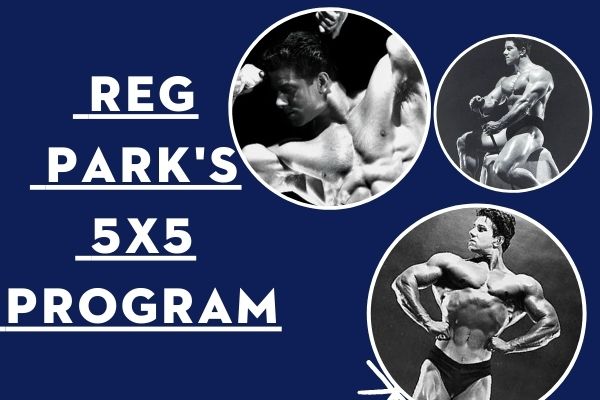Muscle Confusion is among the classic marketing terms, which is said to have originated from the famous P90X program, post its intro in 2004. But a similar concept “shocking the muscle” has been used since the Golden era of bodybuilding.

The concept behind ‘muscle confusion’ is that your muscles adapt to any stimulus eventually, so we should be adding more variety in exercise, or switch workouts constantly, which will shock/confuse the muscles and force them to grow.
Yet for others, muscle confusion is about motivation. Acc. to a study, “Gaining muscle mass and strength while maintaining or increasing motivation to exercise seem to be a relevant factor to improve adherence to exercise. In this sense, some popular exercise programs advocate frequent rotation of exercises as a means to optimize results and improve exercise motivation. The term “muscle confusion” has been coined to describe the effects of constantly varying exercise selection as a means to provide a novel stimulus that enhances muscular adaptations.”
With this logic, it does make sense. But is it based on science or just pseudoscience?
A study, compared the effects of a traditional training program (fixed exercises and repetition ranges) to a training program where exercises and repetition ranges were randomized on a session-by-session basis on markers of muscular adaptations and intrinsic motivation in resistance trained men.
21 men were divided into 2 groups. One group performed workouts consisting of the same six exercises for upper body and the same six for lower body, always in the same order, four workouts per week (two for upper, two for lower), three sets per exercise. The other group followed the exact same parameters (number of exercises, sets, reps), except the upper and lower body exercises were selected randomly from a database of 80 exercises. So, one group made no exercise changes while the other group was always changing its exercises and order in a way that even participants couldn’t predict.
Now, the results were quite interesting as the group which varied the exercises had enhanced motivation during the 8-week study. But there was no difference in terms of strength gain or muscle growth between the groups. In fact, some outcomes appeared to be slightly attenuated from frequent rotation of exercises.
The researchers concluded that: “There may be a trade-off whereby too frequent rotation of exercises somewhat compromises muscle growth and strength; thus, those who wish to maximize these outcomes may wish to limit exercise variety. A possible solution is to keep more complex, free weight exercises (e.g. squats, deadlifts, rows, etc) in a regular rotation throughout a training cycle and vary movements that have limited degrees of freedom and thus do not require a high degree of motor learning (e.g. leg extensions, machine press, arm curls, etc).”
Some coaches also have coined a new term for changing exercise in every workout: “Training Attention Deficit Disorder”. It’s because of the overload of information on the internet, because of which people are changing virtually every single aspect of their workout the moment they step in the gym.
This aspect is fine, if your goal is nothing but general fitness and exercise, to keep yourself healthy. Because then it is not about a specific goal.
But if your goal is building muscle and gaining strength, then the workout has to be planned, and you will have to do repetitive exercises to assess the progression in them. You will have to test your strength against a consistent set of exercise movements, and try and improve in every workout. Remember, “progressive overload” is the cornerstone of strength & hypertrophy.

Remember that, your muscles don’t have memory of their own. They simply respond to the stress/stimulus your give them. They adapt to the stress, by getting stronger and bigger.
So, if you are doing dumbbell chest presses in one workout, and in the next you change that to barbell presses, your muscles won’t be surprised to see you using a different tool and start growing, because they are shocked.
Of course workout variations are needed, but not in every other workout. For e.g. if you are performing 3-4 exercises in a workout targeting chest. You can surely change an exercise or so, every time you hit your chest. But, the basic compound movements must remain the same for at least 4-8 weeks or more, till you can really see progression in them.
For e.g. if you are lifting 15kg dumbbells in chest press. Your aim should be to progress to heavier dumbbells in the same exercise, to really see progress in terms of hypertrophy and strength. Aim should be to target 17.5, 20, 22.5, 25kg… and so on for the next workouts.
There would be a time, when you would hit a plateau in terms of your current workout progression. That’s the time to change the exercise selection. But even then, the selection is not changed completely, or to any random order.
Had this been true, then the weightlifters and powerlifters would not be getting any stronger or bigger, on the basic lifts of squats, bench presses and deadlifts.
Also, in most cases, the stagnation is not because of workout plateau, but because of other variables like diet adherence, sleep deprivation, illnesses, or improper workout intensity and volume.
Adding to more confusion to the already confusing topic of ‘muscle confusion’, is a reference to our hunter-gatherer forefathers by some individuals. Acc. to them, our ancestors never did planned workout. They did random movements every day and were much stronger, fitter, faster and healthier than us.
The logic seems fine, but the observation and correlation aren’t. Our ancestors did random movements, due to the demand of their lifestyle. But if they wanted to learn a skill or develop strength, they would apply the same principle of repetitive progressive overload.
For e.g. if they wanted to learn to climb a tree. They would practice this skill daily, from a young age. This would slowly help them develop, overall strength and skill to climb a tree.

This is true for every human being irrespective of time and age. The only difference is that our ancestors did it without being aware of this principle, and we do it today, by understanding it more scientifically.
To develop any new skill, it needs daily repetitive practice. When you were first learning to ride a bicycle, drive a car, learn a musical instrument, you want to master a subject etc. you would have practiced for weeks and months, before you could gain precision on them.
Then there is a 3rd aspect to the ‘muscle confusion’ theory. Many people equate delayed onset muscle soreness (DOMS). This is because when they change their workout or exercise selection, they are more sore in the next few days.
But the fact is that soreness has nothing to do with muscle growth. The most experienced of athletes will also have muscle soreness if they change their exercise selection or encounter something new in the workout. Same is the case with people who are beginners, as they are always encountering newer stimulus in workouts, or people who are re-starting their workouts after a long break.
If someone tells you, repetition sucks, it’s boring. Then, sure it does. But remember, success is the sum of small efforts, repeated day-in and day-out.



